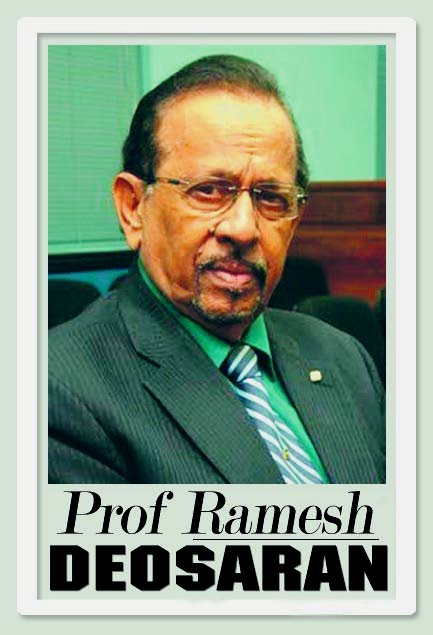This leader showed class

Leaders come in all types and in all places – politics, business, sports, etc. And accordingly, their performance varies from failure, mediocre to success. The late University of the West Indies vice chancellor, Sir Alister McIntyre, demonstrated leadership qualities with “class.”
That is, for example, integrity, respect for others high or low, exemplifying what he preached, fair-minded, always seeking to inspire others, modestly accepting disagreements and courageously moving beyond failures. You see it but can’t define it. You also know who doesn’t have it.
I read about his extensive international work, his many challenges and met him several times during his 1988-1998 service as UWI vice chancellor. Much of this lies in his 2016 autobiography “The Caribbean and the Wider World.” He was badly affected by diabetes. He died at 87, May 2019.
From up and down school and work experiences in Grenada, unsettling university studies in London, university positions at Mona and St Augustine campuses, programme developments at UWI, service at the United Nations and Caricom to technical support for Caribbean governments, he declared himself as a Caribbean man with a regional vision. (pp 83-192) As he moved up and down the region and across the seas, he did admit to many disappointments.
He stated: “When I try to assess the totality of my impact at the UWI. I am more inclined to focus on my failures than on my successes. The ambitions which I held for the university were not, for the most part, realised to the extent that I had hoped.” (p. 248)
Such “failures” were evident not only in his proposals for economics, natural science and medicine but in his dedicated mission for international linkages, that is to make UWI a more globalised institution. As vice chancellor, he had lots of high-level contacts. On one occasion, as he related, the Malaysian prime minister invited him to have UWI establish a medical school in Kuala Lumpur with UWI staff, students and resources paid for by Malaysia. The proposal was not accepted by the faculty. (p.245) But he carried on.
I fondly remember three of our several encounters. (1) I was at breakfast at Hilton hotel with Derek Chadee (now professor), Sir Alister few tables away. He asked me to join him and Prof Rex Nettleford. He said: “I understand you got a senior Fulbright scholarship to the US.” Advising me how to handle UWI bureaucracy, etc, he helpfully said “I will send you some names to contact when you reach.” I had gotten two senior Fulbright scholarships which enabled me to write two books, one on the practice of community policy, the other trial by jury. (2) At a reception by my friend Prof Karl Theodore, he beckoned my wife and me, apologising for the undue delay in promoting me as professor. “It was bureaucratic delay, nothing more professor.” (3) Around QRC, chipping on the road with his brother Dunbar, he called out to me inside the J’Ouvert band, expressing great surprise at my presence just as I was with his. His outfit was something else.
From Oxford to Mona (1960-61) he got frustrated by being asked to do 22 1/2 hours per week teaching while "the next person was given five hours and others less than that.” (p. 47) He took up the challenge. When ECLAC invited him to Mexico, “All hell broke loose” in his department. When invited to Columbia University to develop teaching economics, “there was a virtual explosion” from staff protests. But UWI principal, Sir Arthur Lewis, got him through.
Alongside, Sir Shridath Ramphal, Willie Demas and the Caricom Secretariat, he was a tireless but disappointed technocrat. He ruefully noted the many technical and policy reports shelved by the various governments. He stated: "The tendency continues of not following up the recommendations made by specialist groups at the request of governments. This is where participants gained their most satisfaction but their greatest frustration.” And as often happens, the same problem is subsequently given to another group of specialists with no follow-up.
With Sir Shiridath as chairman and he as vice-chairman of the 15-member West Indian Commission, Sir Alister remained further disillusioned by the apparent paralysis of the commission’s 600-page report, Time for Action (1992). But he carried on with professional class.


Comments
"This leader showed class"